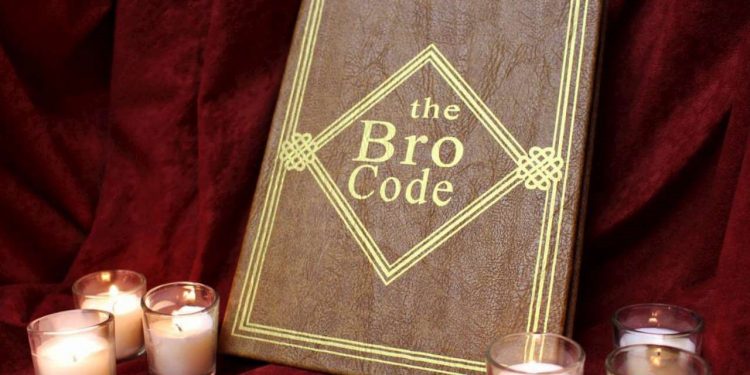There’s something admirable about the loyalty shared among men. The unspoken bond, the ride-or-die mentality, and the assurance that no matter what, you’ve got each other’s backs.
But these days, the boys’ club has taken a much different turn. Beneath the surface of camaraderie, we’ve seen how the bro code can go from being a badge of loyalty to becoming a shield for toxic behavior. What used to represent trust and solidarity has, in many cases, turned into an excuse to cover for reckless actions or to avoid holding each other accountable. And that’s a BIG problem.
Picture this – It’s a Saturday night, and your boy comes home from the club with a girl who is clearly inebriated and can barely walk straight. Instead of pulling him aside and asking, “Is she okay? She shouldn’t be here!” you instead cheer him “Bad guy!”. That’s not brotherhood, that’s enabling. The bro code was never meant to be a green light for bad decisions or a blindfold to right and wrong.
It’s the same story when you know your friend is cheating on his partner, and you choose to say nothing. You tell yourself, “It’s not my business, and it’s not my place to get involved.” But is that really loyalty? Or are you just avoiding an uncomfortable conversation because you don’t want to deal with the fallout?
Being a good friend doesn’t mean blindly approving everything your boy does. Sometimes it means having hard conversations, and having the courage to step in and say, “This isn’t cool, and you know it.”
Enabling someone’s bad behavior doesn’t make you loyal; it makes you complicit. If your loyalty to your friend comes at the expense of others whether it’s a stranger at a party or someone they care about, you’ve crossed the line from ally to enabler.
So, the next time you find yourself in one of those moments, ask yourself – Am I being loyal, or am I being an accomplice? Remember, accountability doesn’t only apply to the person making the decisions; it applies to those who stand by and let it happen. Choose wisely.


